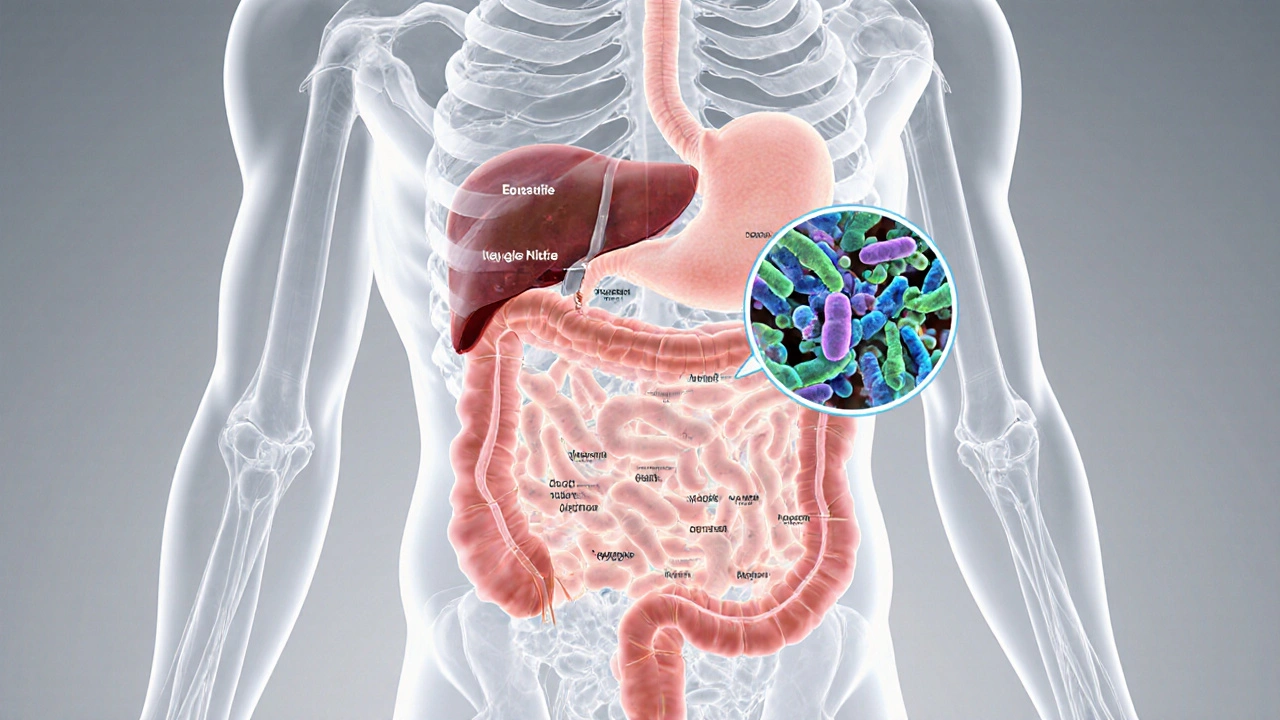Gut Health Tips
When focusing on gut health, the overall condition of your digestive tract, including the balance of beneficial bacteria and the efficiency of nutrient absorption. Also known as intestinal health, it plays a key role in energy levels, mood, and immune defense. Understanding how the gut works lets you make small changes that add up to big results. Gut health matters because it affects almost every system in the body.
Key Players in a Healthy Gut
The first player is the microbiome, the community of trillions of microbes living in the intestines. A diverse microbiome supports digestion, produces vitamins, and trains the immune system. The second player is probiotics, live beneficial bacteria you can add through foods or supplements. Regular probiotic intake helps keep harmful bacteria in check and can smooth out occasional upset stomachs. Finally, fiber, the plant‑based carbohydrate that feeds good gut bacteria is the fuel for both microbiome diversity and regular bowel movements.
These three entities interact in a clear chain: a fiber‑rich diet feeds the microbiome, a balanced microbiome makes probiotics more effective, and together they improve digestion and boost immunity. In other words, gut health encompasses microbiome balance, requires adequate fiber, and is influenced by probiotic intake. When any link weakens, you might notice sluggish digestion, low mood, or frequent colds.
Practical steps are simple. Start your day with a high‑fiber breakfast—think oatmeal topped with berries or a whole‑grain toast with avocado. Add fermented foods like yogurt, kimchi, or sauerkraut to lunch or dinner to give your gut a probiotic boost. Finally, stay hydrated; water helps fiber move through the system and keeps the microbiome happy.
Beyond food, daily habits matter too. Regular sleep supports the gut‑brain axis, meaning better sleep helps keep your microbiome stable. Light exercise, even a short walk after meals, stimulates peristalsis and reduces bloating. If you’re prone to stress, try a quick breathing exercise or a few minutes of mindfulness; stress can disrupt gut bacteria and trigger digestive discomfort.
For those looking to track progress, notice changes in energy, mood, and how often you need the bathroom. A smoother routine, fewer cravings, and a clearer mind often signal that your gut is on the right track. If symptoms persist, consider a simple probiotic supplement or a fiber powder, but always check with a healthcare professional first.
Our collection below pulls together easy recipes, science‑backed explanations, and quick lifestyle tweaks that fit into a busy UK kitchen or any hectic schedule. Whether you’re after a high‑fiber breakfast, a guide to probiotic foods, or tips to link gut health with better sleep, you’ll find practical, evidence‑based advice ready to try today.
Ready to dive in? Browse the posts below for step‑by‑step tips, tasty recipe ideas, and simple habits that will keep your gut thriving and your days feeling brighter.

Gastro Health Guide: How to Boost Your Gut Wellness
Learn how the digestive system works, get practical gut health tips, discover when to see a doctor, and follow a daily checklist for better gastrointestinal wellness.
Read More